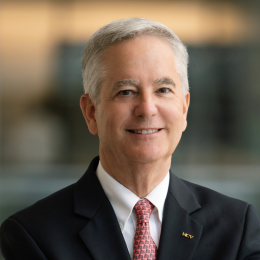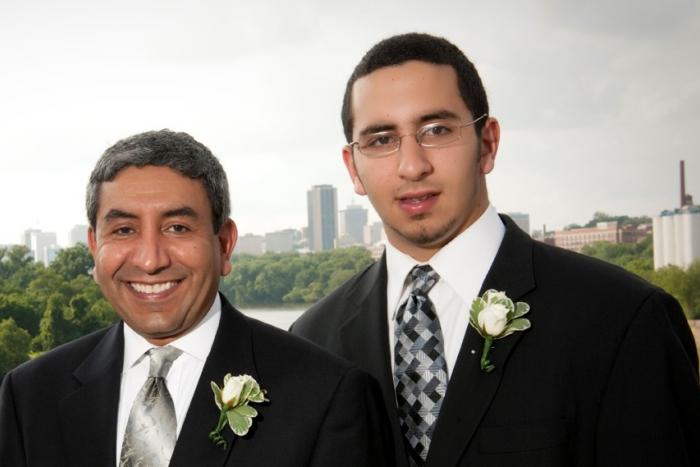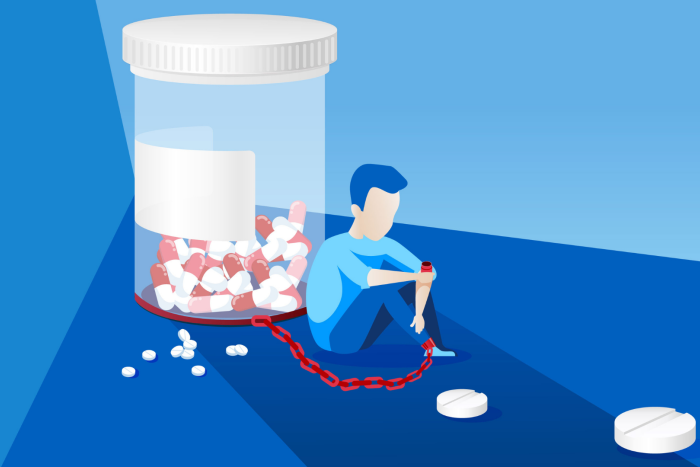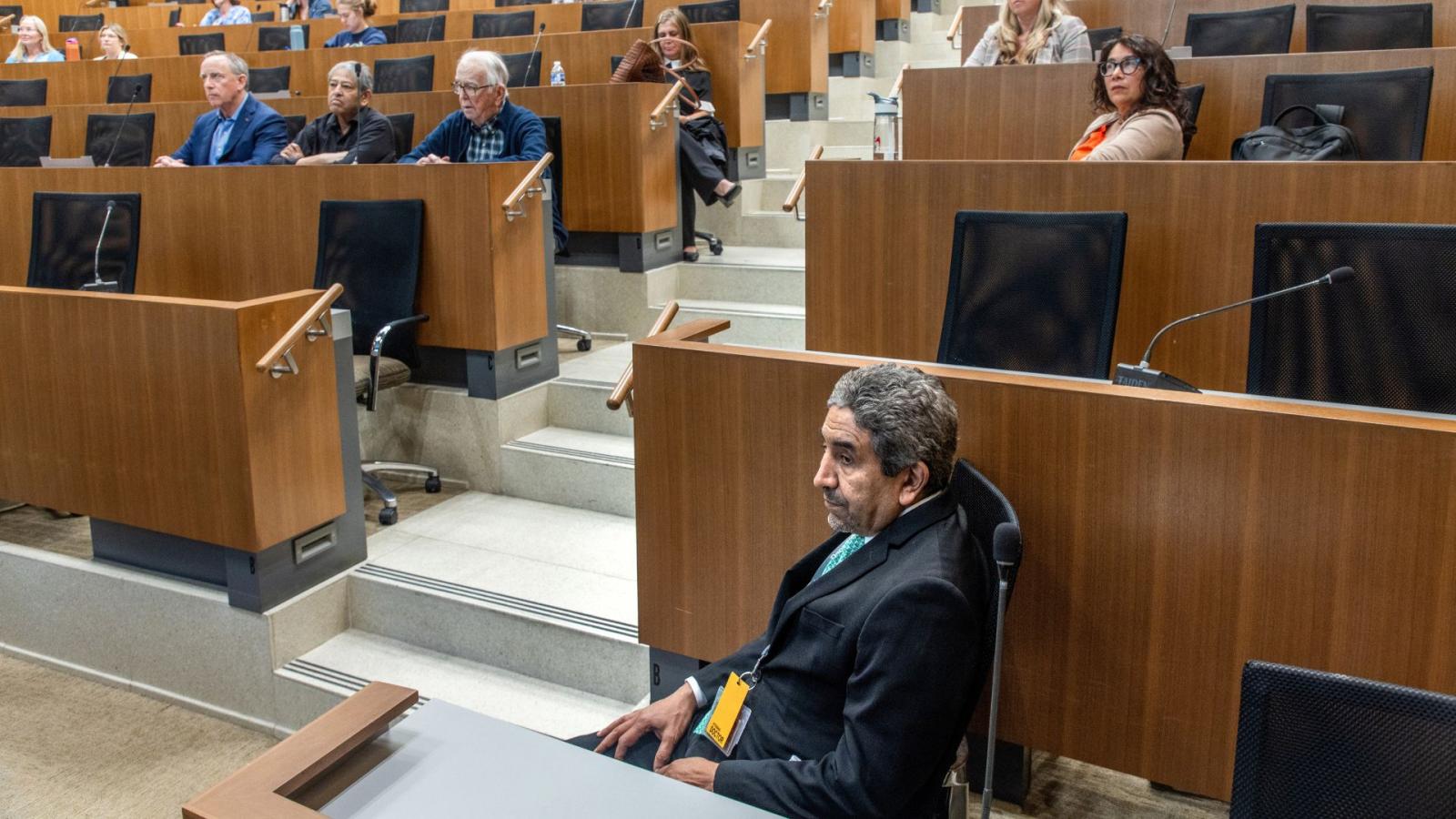
Omar Abubaker, D.M.D, Ph.D., whose son died of an opioid overdose in 2014, listens as a panel discusses efforts taken at VCU and at the state level to reduce opioid-related overdoses and deaths throughout Virginia. The panel was part of the third annual Adam Abubaker Memorial Lecture, which Dr. Abubaker established in 2020 to educate dental students, medical students, faculty and the Richmond community about the risks of opioid abuse disorders. Photos: Daniel Sangjib Min, MCV Foundation
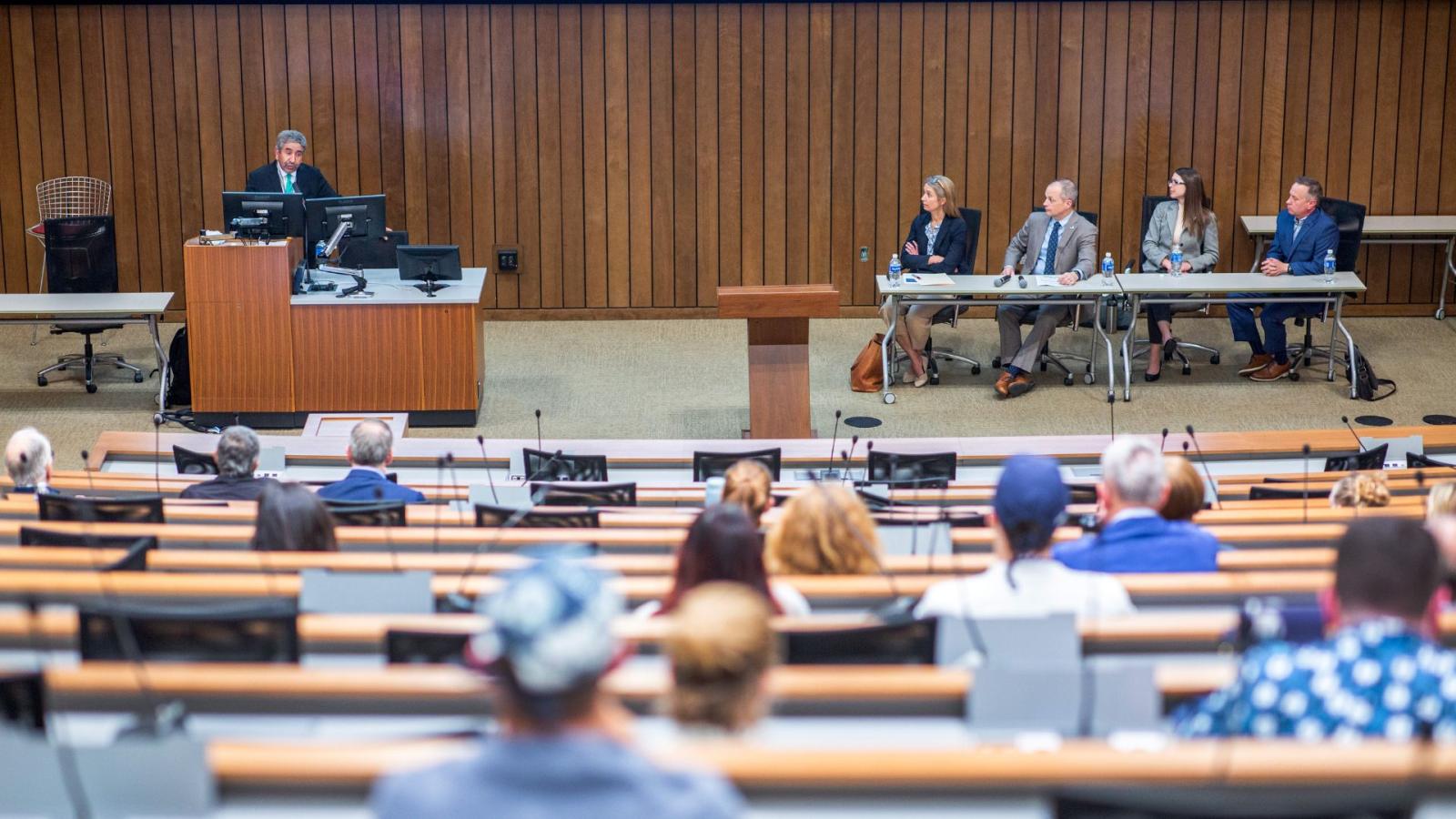
Omar Abubaker, D.M.D., Ph.D., shares brief remarks and his family’s story before the third annual Adam Abubaker Memorial Lecture, which featured a panel of addiction experts moderated by F. Gerard Moeller, M.D., professor and addictions division chief, VCU Department of Psychiatry, and featured a panel of state health officials and VCU faculty.
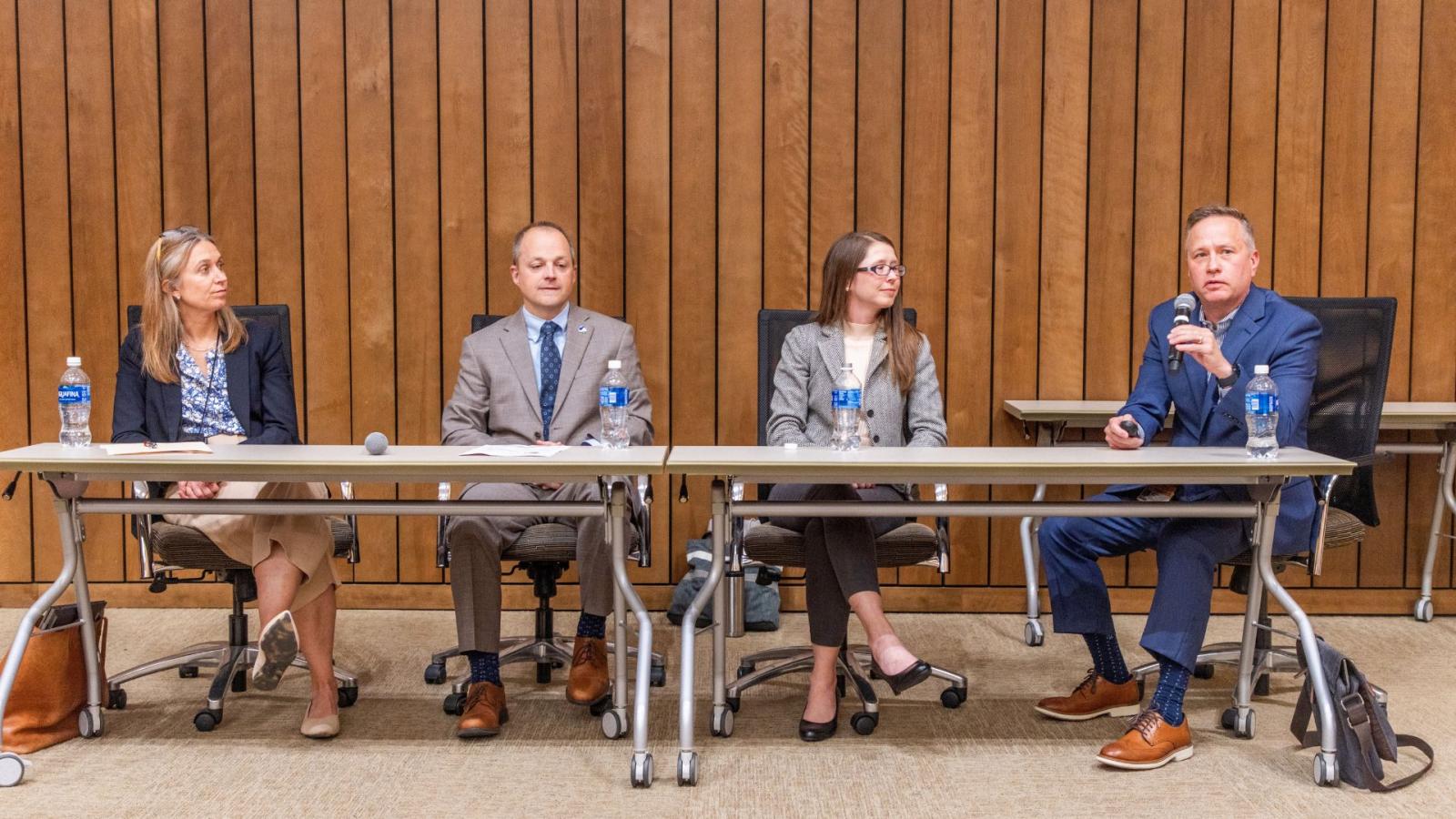
Panelists for the third annual Adam Abubaker Memorial Lecture included (L to R) Laurie Forlano, M.D., director of the Office of Epidemiology for the Virginia Department of Health; Anthony E. “Tony” McDowell, executive director of the Virginia Opioid Abatement Authority; Jacqueline Britz, M.D., assistant professor and co-director of the VCU Ambulatory Care Outcomes Research Network; and Brandon Wills, M.D., professor and medical director of the VCU MOTIVATE Outpatient Clinic.
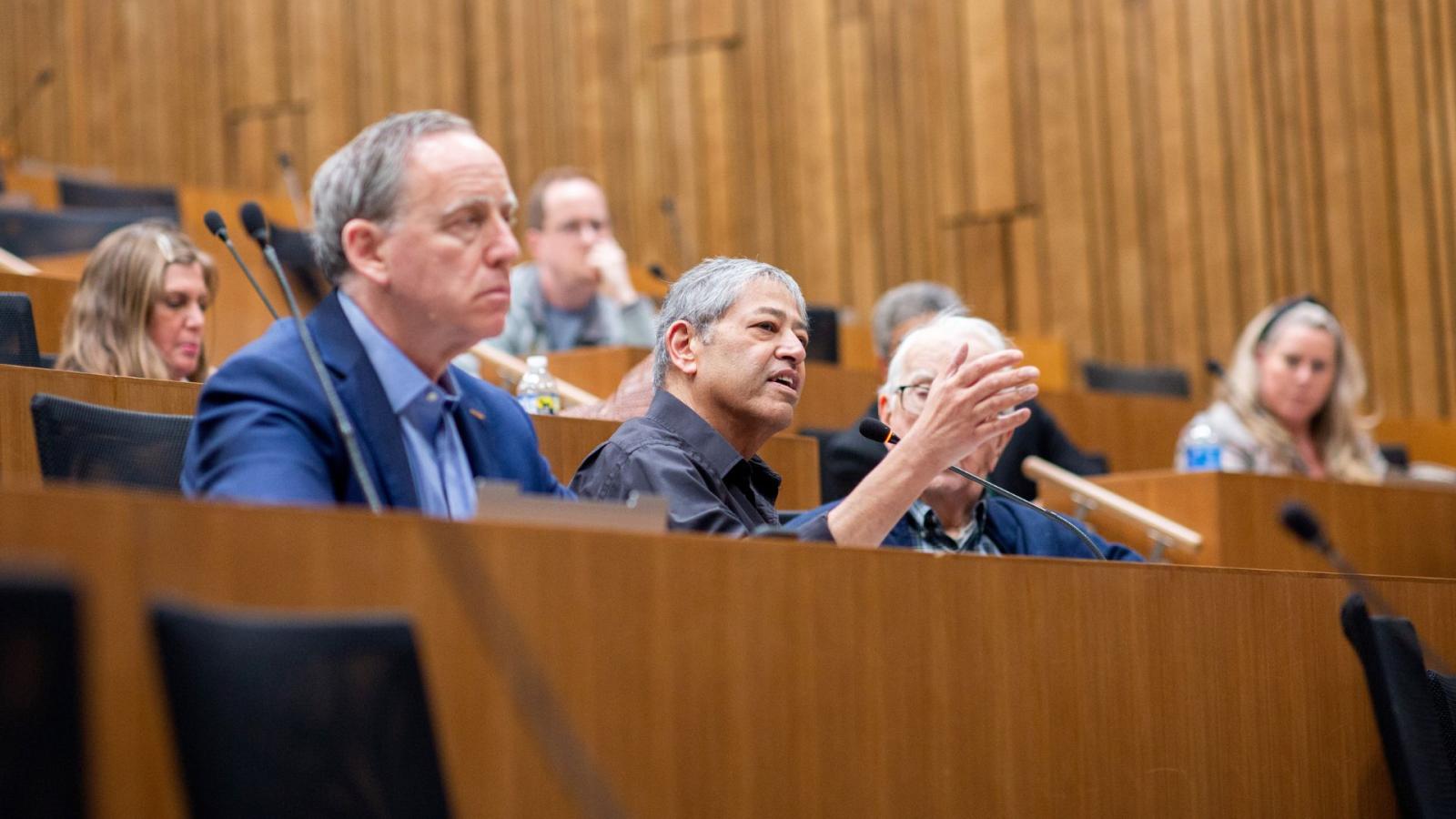
Audience members had the opportunity to ask questions of panelists following the third annual Adam Abubaker Memorial Lecture. The lecture series was established in 2020 in honor of Adam Abubaker, the son of Omar Abubaker, D.M.D, Ph.D., following Adam’s death in 2014 from an opioid overdose.
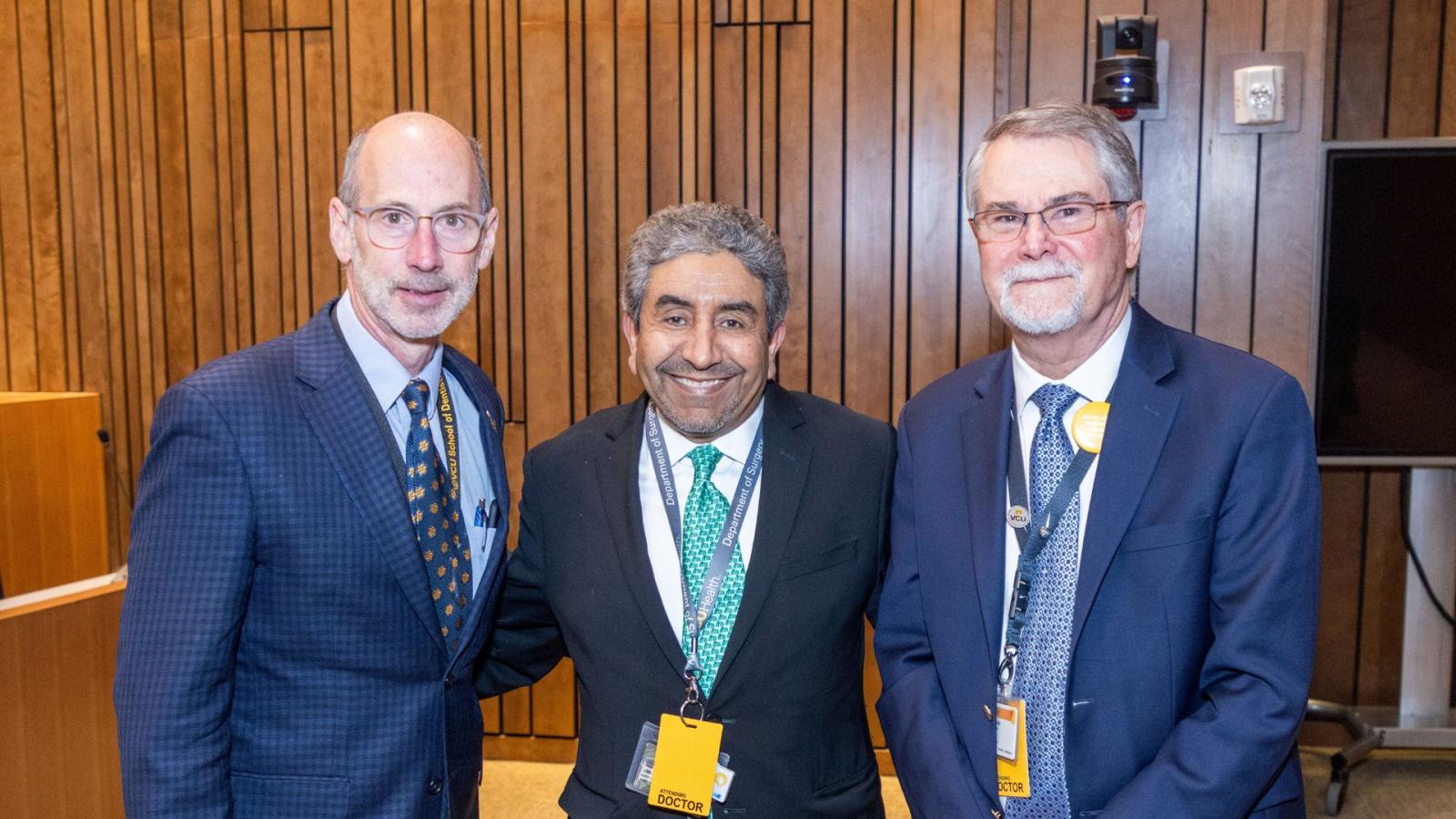
Lyndon Cooper, D.D.S., Ph.D., dean of the VCU School of Dentistry, with Dr. Abubaker and panel moderator F. Gerard Moeller, M.D., professor and addictions division chief, VCU Department of Psychiatry. The lecture aims to educate students and providers on the MCV Campus about addiction medicine.
Abubaker Lecture Spotlights VCU, State Efforts to Address Overdose Epidemic
The VCU School of Medicine’s third annual Adam Abubaker Memorial Lecture, held this year on April 25, explored “VCU’s Role in Tackling the Opioid Overdose Epidemic in Virginia.”
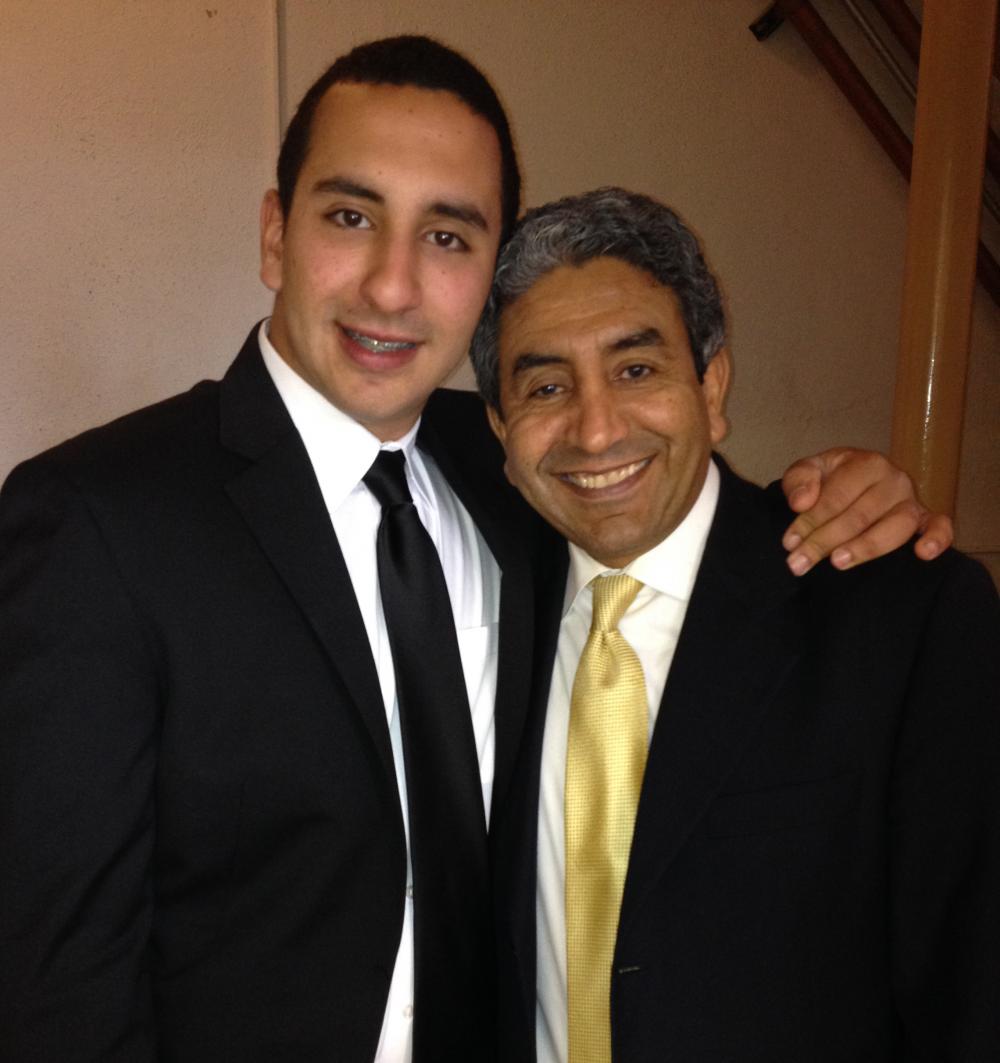
The lecture series was established in 2020 by Omar Abubaker, D.M.D, Ph.D., following the overdose death of his son in 2014. Dr. Abubaker is the S. Elmer Bear Professor in the Department of Oral and Maxillofacial Surgery at the VCU School of Dentistry and VCU Medical Center. Since his son’s passing, he has committed to teaching safe prescribing practices to future dentists and physicians as a means of reforming standards and practices that could ward off future tragedies.
It’s about letting patients know, ‘I’m glad you’re alive, I’m glad you lived through this, and I care about you.
Brandon Wills, M.D., professor and medical director of the VCU MOTIVATE Outpatient Clinic
This year’s lecture featured a panel moderated by F. Gerard Moeller, M.D., professor and addictions division chief, VCU Department of Psychiatry, that included Anthony E. “Tony” McDowell, executive director of the Virginia Opioid Abatement Authority; Jacqueline Britz, M.D., assistant professor and co-director of the VCU Ambulatory Care Outcomes Research Network; Brandon Wills, M.D., professor and medical director of the VCU MOTIVATE Outpatient Clinic; and Laurie Forlano, M.D., director of the Office of Epidemiology for the Virginia Department of Health.
Dr. Forlano, whose office tracks visits to emergency rooms and urgent care centers throughout the state, set the stage by sharing some overall statistics. In 2023, there were nearly 22,000 visits to emergency rooms for drug overdoses. There was a peak in 2021, she said, of roughly 2,600 deaths. That number dropped slightly in 2022 to about 2,500 deaths, and health officials expect preliminary overdose death data for 2023 will continue to decrease slightly.
Most of the drug overdoses in Virginia — around 8 out of every 10 — include fentanyl, fentanyl analogues and/or tramadol.
Dr. Britz explained that VCU is studying areas across Virginia where opioid issues exist, but seem to be doing better than expected in terms of fewer deaths.
The research teams have created opioid mortality statistics for every ZIP code in the state, and they compare those findings to state mortality data. Early research shows that bright spots — those areas doing better than expected — tended to be areas where there are higher prescriptions for opioid use disorder, higher rates of primary care visits and lower population density. These areas also had higher rates of localized collaborative programming among organizations and agencies, including mobile clinics, more training for physicians, school programming and more.
“That shows the power of working across multiple disciplines,” Dr. Britz said, from addiction providers and mental health to social work and housing.
While many research projects focus on opioid mortality, Dr. Britz’s team looks at communities that have positive outcomes and lower mortality than anticipated by predictive models based on certain risk factors.
“The goal is to learn what’s going right in those communities,” Dr. Britz said, “and to identify potential strategies, best practices and other success stories that could be applied more broadly in Virginia.”
Dr. Britz said that her team has received funding from the Virginia Opioid Abatement Authority to develop an innovative online toolkit that will feature evidence-based, community specific data that outlines metrics for success.
Dr. Wills followed by explaining that VCU created a take-home program in 2022 that allows patients who’ve come to the emergency room for an overdose to leave with naloxone if they’re at risk of overdosing again, as well as information about the MOTIVATE Clinic and treatment resources.
Naloxone is an opioid antagonist that quickly reverses an overdose. Nationally, about 5% of patients who visit emergency departments for overdoses will die from an overdose within a year of that first visit. VCU is working to change those statistics.
Since the take-home program started, more than 500 kits containing naloxone and information have been distributed. Dr. Wills said his team has just begun to study the impact and while it’s still early, there appear to be reduced emergency department visits and reduced death rates within six months since the program started.
Next steps include collaborating with health systems across the state and working with legislators to remove barriers to care and finding resources, both financial and otherwise, to help coordinate efforts.
“Besides providing patients with naloxone, there might be some other downstream benefits,” he said, including one that he’s most excited about — reducing the stigma of treatment. “It’s about letting patients know, ‘I’m glad you’re alive, I’m glad you lived through this, and I care about you.’”
If you are interested in supporting the Adam Abubaker Memorial Lectureship at the VCU School of Medicine, please contact Brian Thomas, executive vice president and chief development officer at the MCV Foundation.
